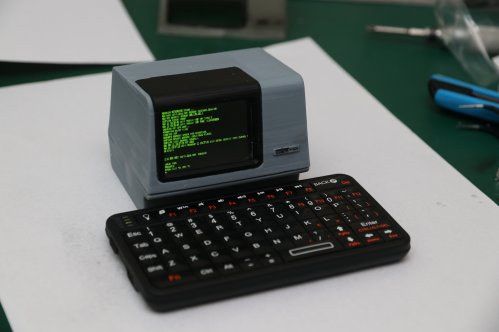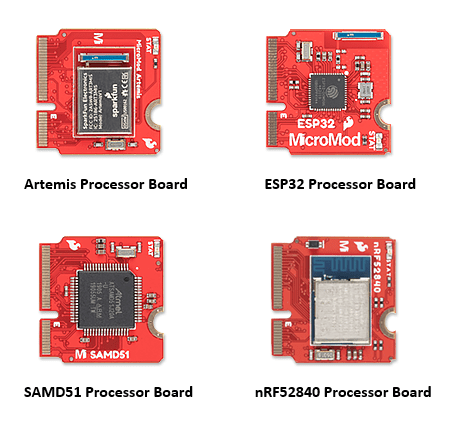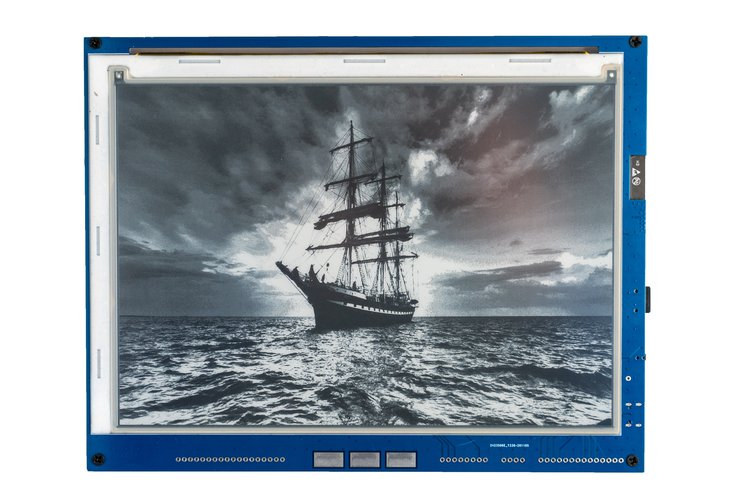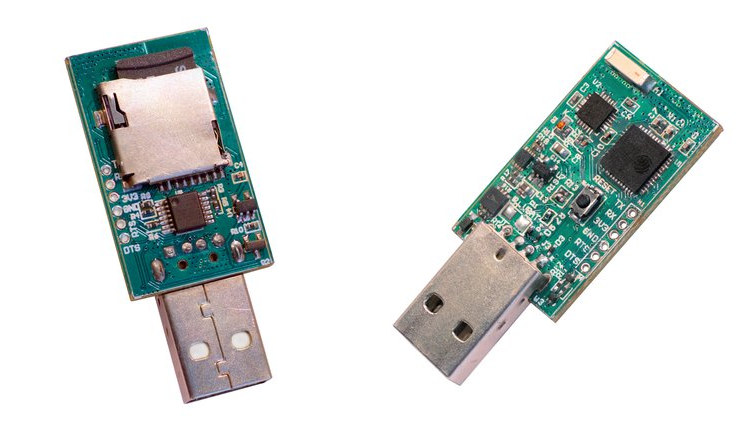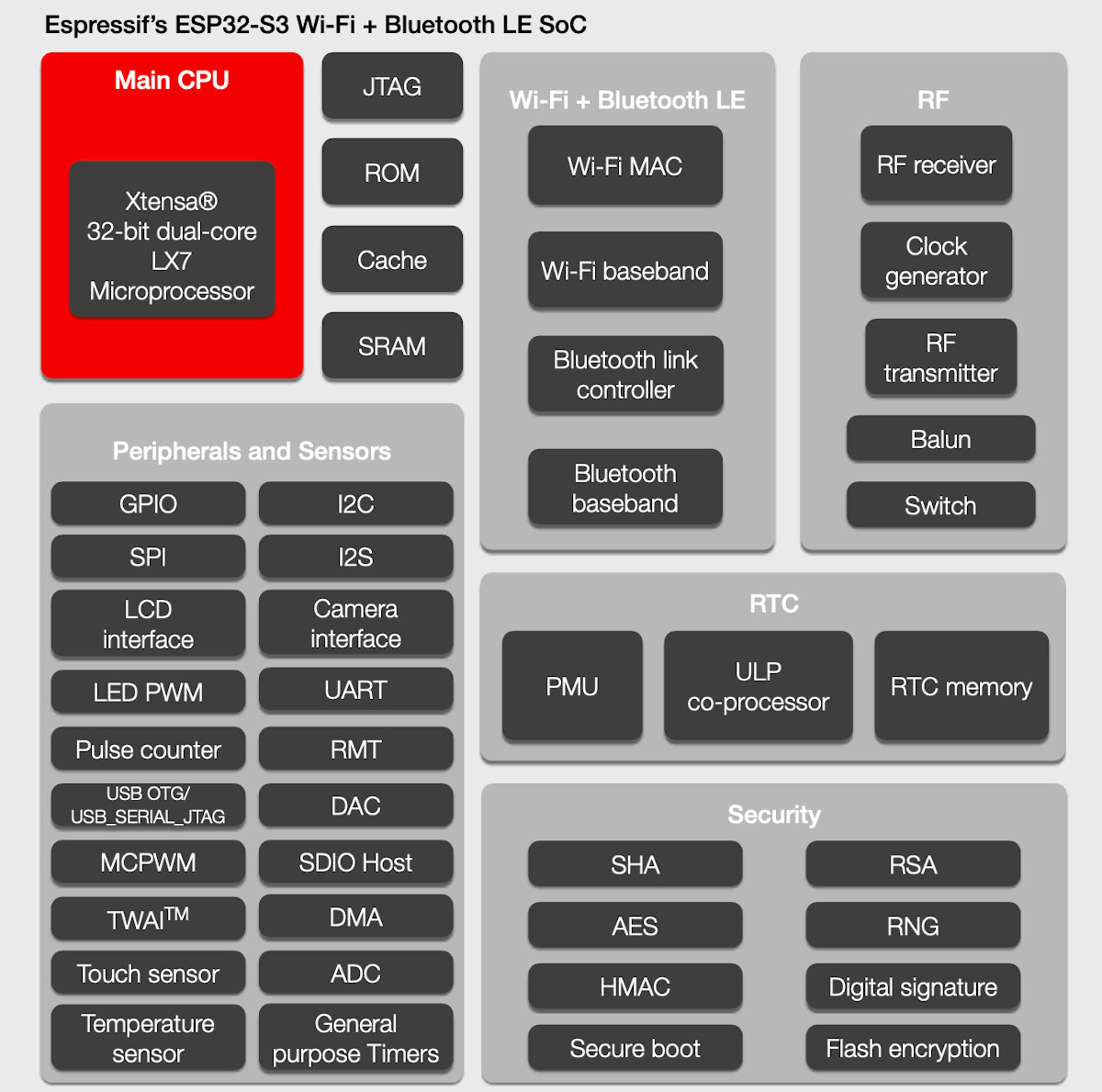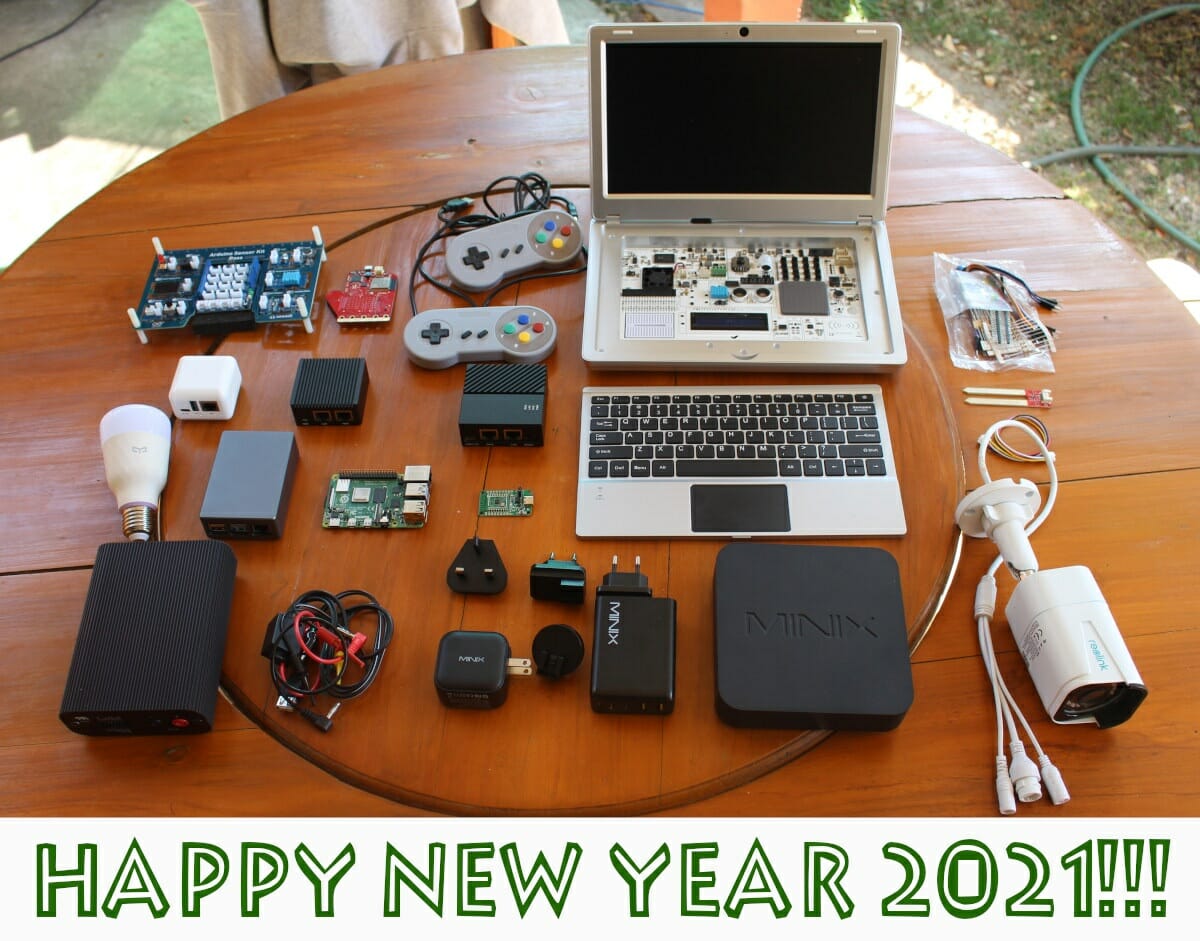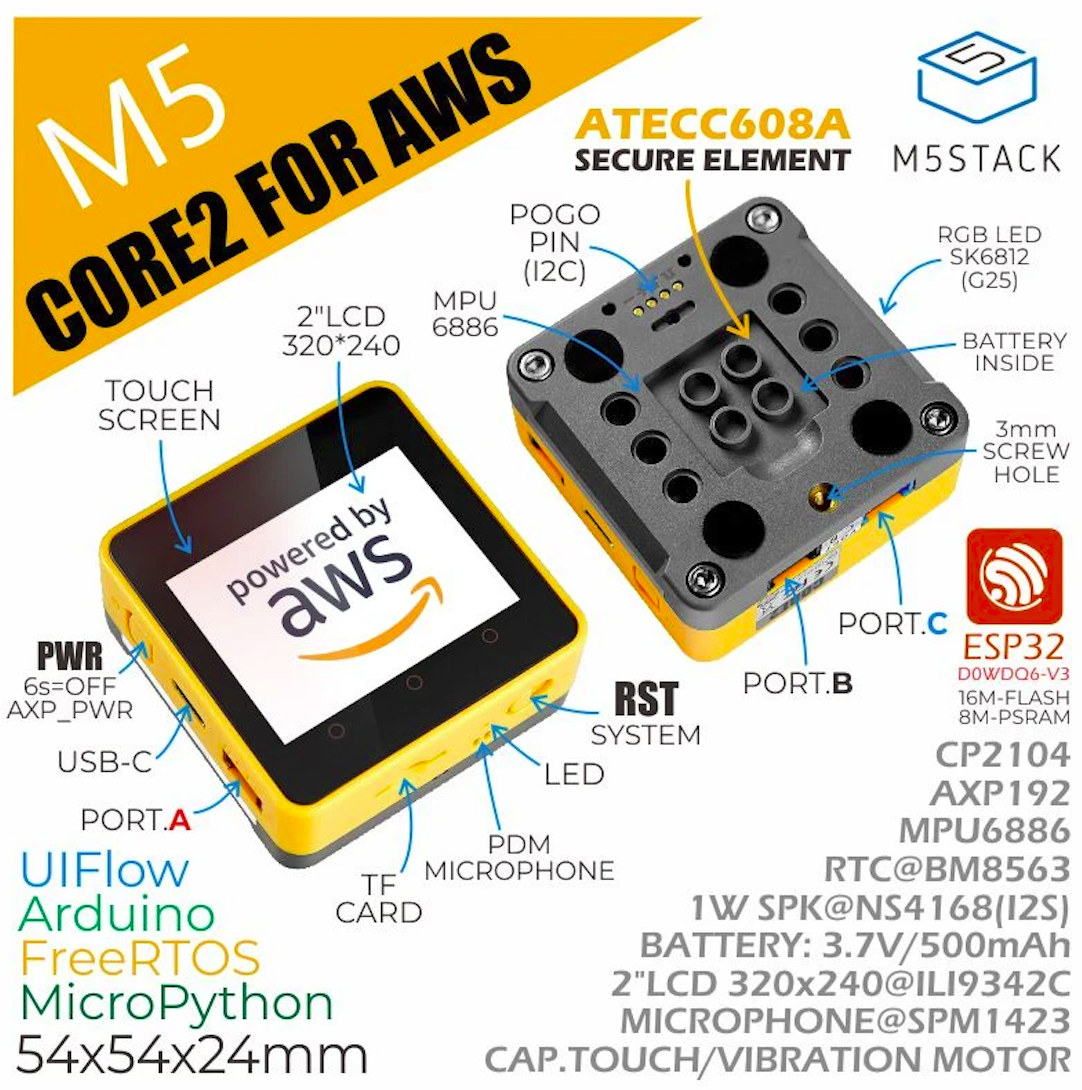The Internet of Things has many applications including smart agriculture . A few months ago, I talked to a local shrimp farm owner who used Arduino and ESP8266 boards to monitor water and activate pumps only when needed to get shrimps healthy and save on his electricity bill. He built his own solutions, but there are also companies offering easy-to-use smart farming solutions such as Malaysia-based Wondernica’s Agromon “interface wireless transmitter” designed specifically for smart agriculture applications. Agromon has two variants with support for 2 sensors (WR-AGRO-2S) or 3 sensors (WR-AGRO-3S) that share the following specifications: Connectivity – WiFi, Sigfox (RCZ 2/4), LoRaWAN, NB-IoT Sensor Interface – Modbus RS485 (analog input / 4-20mA / 12V-14V output) Power Supply – 12V DC (tolerance up to 14V); supports batteries, solar power, or power adapter Power Consumption – Sleep Mode: 3 mW Dimensions – 130 x 90 x 40mm Ingress Protection – IP67 […]
Mini replica of DEC PDP-11 computer runs 2.11 BSD UNIX on ESP32 SoC
The relatively popular Digital Equipment Corporation (DEC) PDP-11 16-bit minicomputers started selling in the 70s, and were still available in the earlier 90s. While being stuck in Europe due to COVID-19 restrictions, Jeroen Domburg (aka Sprite_tm) decided to design a tiny replica of a DEC VT102 PDP-11 terminal based on ESP32 wireless SoC and running 2.11 BSD UNIX through SimH PDP11 emulator. Jeroen had to do significant work to make SimH works on ESP32 however, with notably the need to optimize the memory footprint: Obviously, ‘just port SIMH to an ESP32’ is a bit of a understatement for the effort that was needed. Even while SIMH is a pretty nice program when it comes to not using any unique APIs, it still is a system developed for a full-blown workstation and assumes RAM is cheap and plentiful. In order to get it running on an ESP32 and still have some […]
MicroMod modular ecosystem offers M.2 microcontrollers cards and carrier boards
MicroMod is a modular interface ecosystem for quick embedded development and prototyping. MicroMod comes with two components, that is a microcontroller “processor board” and a carrier board. PC industry’s M.2 connector is the interface between these two components. The carrier boards are for the usage of various peripherals and the processor board act as the brain of the application system. MicroMod processor board has a dimension of 22×22 mm that can be easily fitted on the carrier boards. Although, the original M.2 standard was dedicated to swapping out peripherals where a user could swap one component with the other one. The MicroMod standard is for swapping out microcontrollers according to the functional and application requirements. MicroMod Processor Boards Artemis Processor Board comes with an Ambiq Apollo 3 Blue Arm Cortex-M4F with BLE 5.0 running up to 96MHz and a power rating of less than 5mW. It also supports the TensorFlow […]
Inkplate 10 ESP32 e-Paper display offers faster refresh rates (Crowdfunding)
Inkplate 6 is an ESP32 powered wireless e-Paper Display based on a recycled Kindle E-reader display, and that e-Radionica launched in December 2019 via a crowdfunding campaign. The company says backers were “happy about the versatility and simplicity of the display” but wished for a larger display, a faster refresh rate, and extra features. This gave birth to an upgraded version: Inkplate 10. The new ESP32 wireless display comes with a recycled 9.7-inch display with 1200 x 825 resolution, up to 38% faster refresh rates, as well as extra GPIO pins, an RTC clock, a USB Type-C port, and lower power consumption. Inkplate 10 specifications: Wireless module – ESP32 WROVER module with dual-core ESP32 processor with Wi-Fi & Bluetooth 4.0 (BLE) connectivity, 8MB PSRAM, 4MB flash External storage – MicroSD card socket Display – 9.7-inch, 1200 x 825 e-paper display with support for grayscale, partial updates, and quick refresh cycles: […]
Maypole MicroSD card reader comes with ESP32 for WiFi, smart storage (Crowdfunding)
Several years ago, we covered Zsun WiFi card reader a tiny USB card reader with WiFi and a battery that allowed users to access files via USB or WiFi from any device. People managed to hack the device and run OpenWrt on the little MicroSD card reader, but this required either to open the hardware and do some soldering, or use another method that could potentially brick the hardware, so not an ideal solution. But now Akshar Vastarpara has come with a similar device. Maypole is an open-source hardware MicroSD card reader powered by Espressif ESP32 processor providing both WiFi and the resources for smarter storage. It comes with an optional battery too to access files even without having to connect it to a USB port. Maypole hardware specifications: Storage – Swappable MicroSD cards up to 32GB Wireless Connectivity WiFi 2.4 GHz WiFi 4 via ESP32 WiSoC, Up to 4 […]
ESP32-S3 dual-core WiFi and Bluetooth LE 5 SoC supports AI acceleration for AIoT applications
Back in September, we reported that Espressif Systems planned to release a new ESP32-S3 with “AI instructions and multi-CPU cores” with few other details, except the chip would also be part of the MINI-series wireless modules. Now we have many more details, as the Shanghai-based company has now officially announced ESP32-S3. The processor features dual Tensilica LX7 cores, 2.4 GHz WiFi 4 & Bluetooth 5 connectivity, and as expected supports AI instructions to cater to the AIoT (AI + IoT) market. ESP32-S3 key features and specifications: CPU Dual-core Tensilica LX7 up to 240 MHz with additional vector instructions for AI acceleration ULP core to handle low power modes Memory – 512 KB of internal SRAM Storage – Octal SPI flash and PSRAM support (supports larger, high-speed devices compared to ESP32) Connectivity 2.4 GHz 802.11 b/g/n Wi-Fi 4 with 40 MHz bandwidth support Bluetooth Low Energy (BLE) 5.0 connectivity with long-range […]
Year 2020 in review – Top ten posts and stats
It’s this time of the year when we look back at what happened, and what may be next. 2020 did not pan out as planned in more ways than one, but there were still some interesting developments. Based on 2019 announcements, 2020 was promising to be an exciting year for Amlogic and Rockchip with the expected launch of RK3588 and S908X high-end processors for 8K capable devices, but we’ll have to wait for 2021 for this to happen. Instead, the most interesting processor of the year from the Allwinner, Amlogic, and Rockchip offerings was probably Amlogic S905X4 processing adding AV1 hardware decoding. As pointed out in our “RISC-V 2020 highlights” post, it was a fairly eventful year for RISC-V architecture, although there’s still a long road ahead, especially for application processors. We had seen some general-purpose and Bluetooth RISC-V MCUs in 2019, but 2020 saw the launch of the first […]
AWS IoT EduKit leverages M5Stack Core2 ESP32 hardware
M5Stack Core2 is a neatly packed ESP32 IoT development kit with a 2-inch touchscreen display, motion sensor, a microphone., and a built-in battery that was launched last September. The hardware has been selected by Amazon Web Services and gone through some small modifications including the addition of a secure element, and a yellow paint job giving birth the the “AWS IoT EduKit” hardware and software solution designed to “learn how to build IoT applications using AWS services through a prescriptive learning program”. M5Stack Core2 for AWS IoT EduKit specifications are pretty similar, but with a few tweaks here and there: SoC – Espressif ESP32-D0WDQ6-V3 dual-core Xtensa LX6 processor clocked at up to 240MHz with 520KB SRAM, Wi-Fi, and dual-mode Bluetooth connectivity External Memory – 8MB PSRAM Storage – 16MB flash storage, MicroSD card slot up to 16GB Display – 2-inch IPS LCD screen with 320×240 resolution (ILI9342C driver), and touchscreen […]



